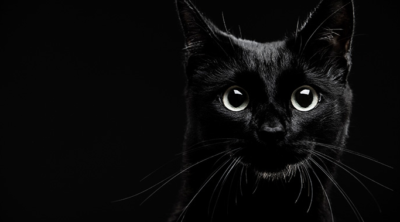
As in case of humans, cats too may develop bad breath due to various reasons, including underlying medical conditions. Go through this article for a brief overview about this condition in felines.
A cat’s breath may not be always fresh and pleasant. This is due to the types of food they eat, and their sluggish digestive systems. In general, felines have a slight bad breath, and only if it turns unbearable, offending, and persistent, that you have to consider it as a sign of some underlying medical condition. So severe bad breath in cats could be due to some underlying cause, that has to be diagnosed and treated at the earliest.
Common Causes
Oral Problems: Bad breath in cats could be due to periodontal diseases, like gingivitis, periodontitis, resorptive dental lesion, etc. Even mouth tumor and cancer can be a cause for bad breath in felines. Feline stomatitis (inflammation of the mouth) can also be a cause for this problem. If any foreign body, like a bone piece, is stuck between the teeth, then also, bad breath may develop in cats.
Broken or decayed teeth may sometimes result in this condition. Tartar deposits on the teeth may also lead to bad breath. The most common cause of bad breath in kittens is teething. As new teeth emerge, the gums bleed, and this blood gets dry and sticks to the gums. Such dried blood in the mouth can lead to bad breath, and the affected cat may also show signs like, red and swollen gums, pain, and loose or missing teeth.
Respiratory Ailments: Such conditions include viral or bacterial infections of the throat, lungs, etc. Even infection of the sinuses and tonsils may cause bad breath. Another possible cause is lung cancer.
Diabetes: Though not common in kittens, diabetes may develop in older felines. Such cats may have a breath with a sweet, fruity smell. They are also found to have excessive thirst with an increased frequency of urination.
Kidney Diseases: In case of kidney diseases, the breath of the affected cat can be pungent, like the smell of urine or ammonia. In this case too, the cat may exhibit signs, like excessive thirst and frequent urination.
Liver Diseases: The breath of cats with liver problems can be really offending, and such felines may also have symptoms, like abdominal swelling and pain, yellow eyes and gums, and loss of appetite.
Gastrointestinal Problems: Such medical conditions include enlargement of the esophagus, bleeding stomach ulcers, obstruction of the intestines, tumor, cancer, and infections.
Treatment
In short, there are various medical conditions that can cause bad breath in cats. The most important thing is to diagnose the underlying cause, and get it treated at the earliest. You have to notice the symptoms exhibited by the cat, other than bad breath. For example, a cat with bad breath and other symptoms, like pawing at mouth, difficulty eating, and swollen gums, may have some oral health problem. In case of liver diseases, the cat may have yellowish eyes and gum, along with vomiting and loss of appetite. So noticing these symptoms may prove beneficial, while diagnosing the condition. The bad breath will subside when the underlying cause is cured. So the cure for bad breath in cats lies in treating the underlying cause, and the mode of treatment may vary with the specific problem. If it is due to tartar deposits, the feline’s teeth have to be cleaned by professionals.
So bad breath may be a cause of worry, if it is severe, persistent, and accompanied with other symptoms. However, in some cases, cats may develop bad breath due to consumption of some specific foods. In such cases, avoidance of such foods may tackle the problem. You may prevent this condition in your cat, by regularly taking it to the vet. Regular checkups are always beneficial in detecting health problems at the earliest, so that they can be treated as soon as possible, thereby avoiding possible complications. Daily brushing is also good for preventing bad breath in cats.
Disclaimer: This article is for informational purposes only, and should not be used as a replacement for expert advice.


